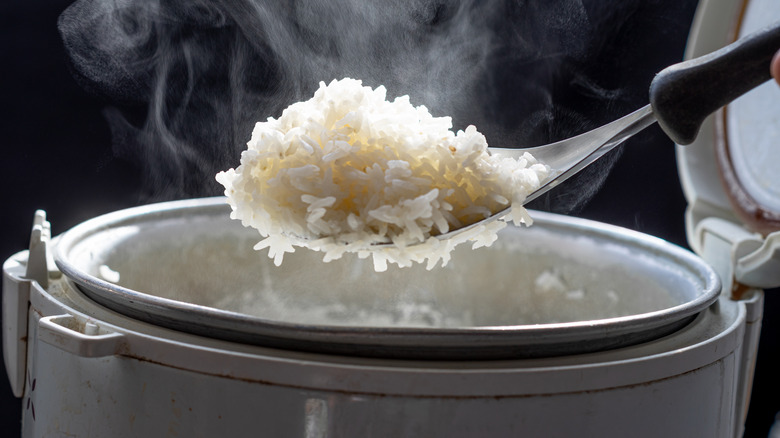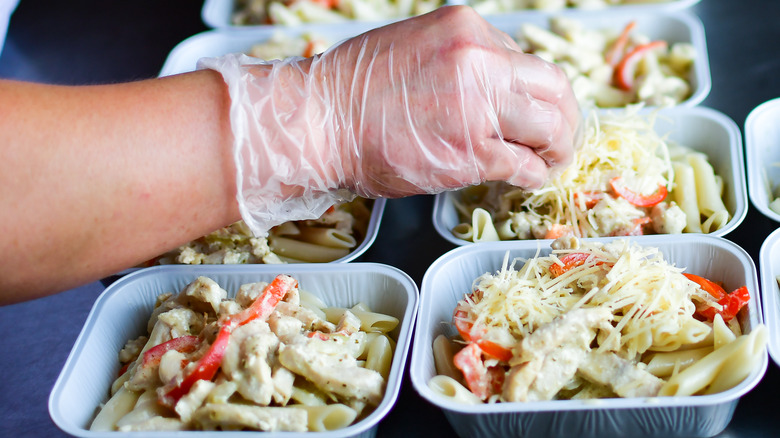Why You Should Be Careful Reheating Starchy Foods
While the dangers of reheating meat are widely documented (via BBC), the issues that could arise from warming up other foodstuffs are perhaps less well known. Foods packed with starch can be particularly susceptible to reheating mistakes – especially due to the popularity of ingredients such as pasta (via Hindustan Times).
Starchy foods contain high amounts of carbohydrates, as well as being crucial sources of energy, fiber, iron, calcium, and vitamins (via NHS). They include foodstuffs that are used in everyday life, such as bread, pasta, rice, cereals, and potatoes (via British Nutrition Foundation). Products that are rich in starch contain a natural bacteria called bacillus cereus – and it's this that can cause some significant problems when reheating food (via SBS).
According to Michael Mosley, a health and science expert, bacillus cereus can create a heat-resistant toxin that has the potential to give people food poisoning. The spiteful toxin is formed in starchy food that has been heated and then left to cool slowly. It's almost as though the likes of pasta and rice don't want to be eaten.
There are simple methods to reduce the risk of food poisoning
This mishap – and similar food poisoning risks related to other bacteria – can be avoided by following a few simple steps when handling foods that are rich in starch. An important initial action is to store food correctly. BBC Good Food notes that food not needed immediately for a meal must be refrigerated in a timely fashion below five degrees Celsius (41 degrees Fahrenheit), ideally within 90 minutes, and split up into smaller, sealed containers.
The NHS suggests that to warm up starchy foods correctly they need to be heated to 70 degrees Celsius (158 degrees Fahrenheit) for two minutes, making sure to check that the food is piping hot throughout. It is further advised that foods high in starch should not be reheated multiple times, and – in what will hopefully be an obvious point- to avoid eating food past its expiry date.
Starchy foods contain natural nutrients that are essential to a healthy and balanced diet (via Harvard School of Public Health), so it is important to be confident and sensible when reheating them. Following the straightforward reheating and storage tips will deny troublesome bacteria the opportunities to thrive.

